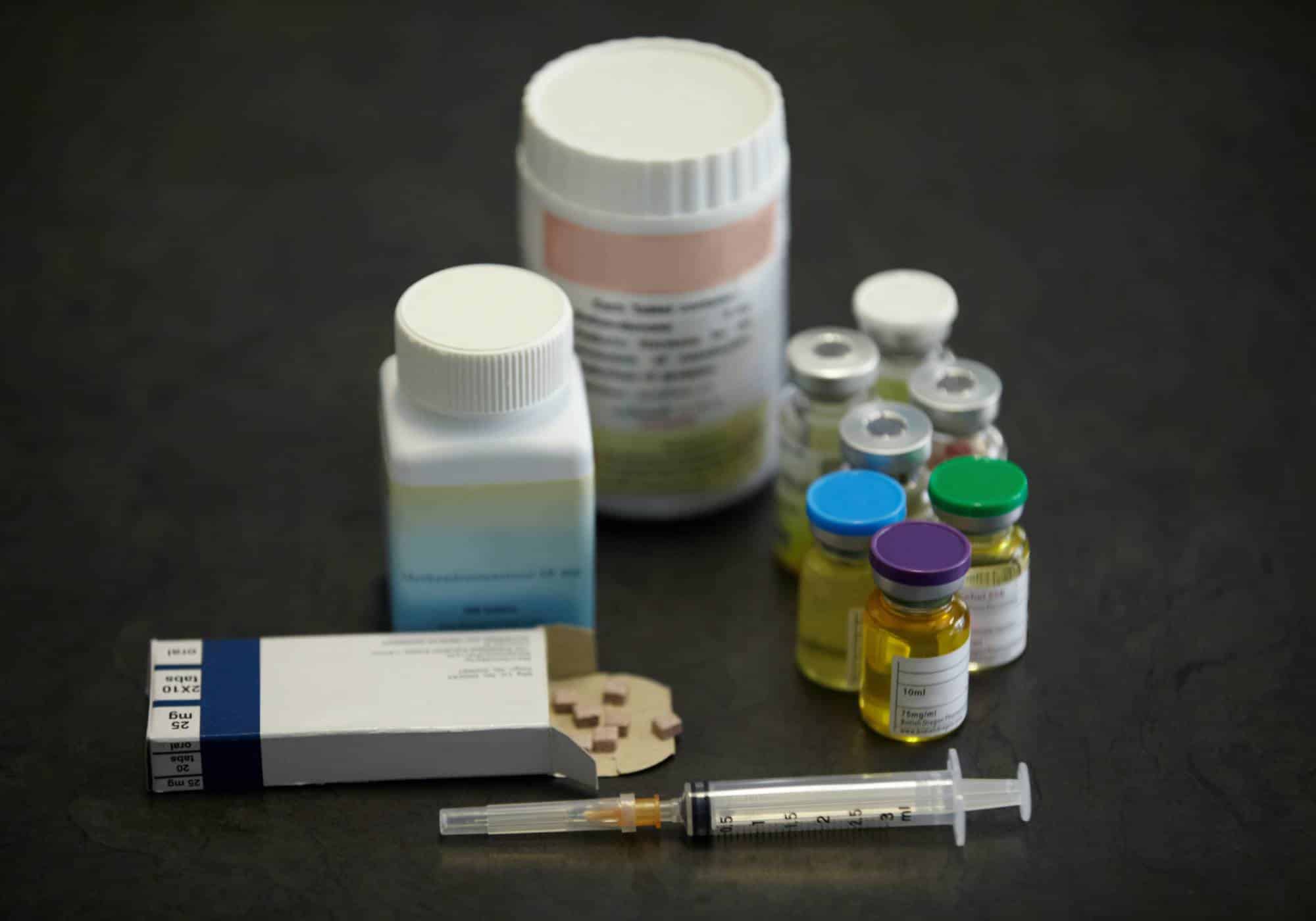Ambien, medically known as Zolpidem, is a prescription drug specifically designed for the treatment of insomnia. Renowned for its quick action and short duration in the body, Ambien can be traced in urine tests up to 24-48 hours post-consumption and is detectable in blood for about 6-20 hours. Furthermore, through hair follicle testing, Ambien can be identified for a period extending to approximately five weeks after use.
Classified under Schedule IV due to its potential for abuse, Ambien operates as a sedative-hypnotic medication. Its primary mechanism involves the activation of GABA receptors within the brain, enhancing the effects of gamma-aminobutyric acid (GABA)—a key neurotransmitter involved in sleep regulation.
While Ambien serves as an effective remedy for sleep disturbances when utilized according to prescription guidelines, it poses a considerable risk for dependency and addiction. Research highlights that in 2017, around 9.5 million Americans resorted to Ambien or other zolpidem-based treatments for insomnia relief. Alarmingly, a substantial fraction of these users may develop an addiction to the medication. Recognizing how long Ambien stays in your system is crucial, particularly for individuals navigating the complexities of Ambien addiction.
How Long Does Ambien Stay in Your System?
The duration Ambien remains in an individual’s system is influenced by various factors and can differ from person to person. Typically, Ambien exhibits a half-life ranging from approximately 2.5 to 3 hours. The half-life is the period required for the body to reduce the presence of the drug by half. Consequently, considering it generally requires around five half-lives for a substance to be entirely cleared from one’s system, Ambien may take around 15 hours to be fully expelled. This timeframe provides a general guideline, although the exact duration can vary based on individual metabolic rates and other personal health characteristics.
What is Ambien Used For?
Ambien is a prescription medication designed to assist individuals experiencing difficulties with sleep, particularly those diagnosed with insomnia. As a specialized sleep aid, Ambien aims to facilitate the process of falling asleep for those who find it challenging to do so.
The use of Ambien is generally recommended for short durations, typically not extending beyond one to two weeks. This guideline is set by healthcare professionals due to the medication’s risk of misuse and the emergence of potentially hazardous side effects, which can include activities such as sleep-eating and sleep-driving while not fully awake. Due to these concerns, Ambien is prescribed with caution, underscoring its role as a temporary solution for insomnia.
How Does Ambien Work?
Ambien operates as a depressant of the central nervous system (CNS), effectively reducing the pace of functions governed by the CNS, including the brain’s neural activities. By decelerating brain activity, Ambien aids individuals in initiating and maintaining sleep, addressing issues of insomnia.
Furthermore, Ambien has a specific action on the gamma-aminobutyric acid (GABA) receptors within the brain. GABA acts as a neurotransmitter that naturally promotes sleep by diminishing brain activity. Ambien enhances the efficacy of GABA by prolonging the activation of its receptors, thereby facilitating a deeper state of sleep.
However, combining Ambien with other substances that also suppress the central nervous system can amplify adverse effects and significantly heighten the danger of an overdose. Such CNS depressants often include benzodiazepines (e.g., Xanax), opioids (e.g., OxyContin), and alcohol, all of which should be used with extreme caution when Ambien is part of a treatment regimen.
Effects of Ambien
The main function of Ambien is to facilitate the onset of sleep. However, it can also lead to various side effects, such as:
- Feeling excessively sleepy during the day
- Experiencing dizziness
- Sensation of being under the influence of a drug
- Engaging in sleepwalking activities
- Higher likelihood of accidents or injuries
- Memory impairments
- Episodes of confusion
- Mood changes, including depression
- Gastrointestinal discomfort, like diarrhea
- Experiencing headaches
Instances of sleepwalking, sleep driving, and engaging in activities like eating while asleep have been documented among Ambien users. Research has shown that these unusual behaviors cease once the individual discontinues the use of Ambien.
Half Life of Ambien
The concept of a drug’s half-life is pivotal in understanding how long it persists in the body, referring to the time required for half of the drug to be expelled from the system. For Ambien, this critical period is estimated to be between 2.5 to 3 hours. Within this timeframe, the Ambien concentration in the bloodstream diminishes by half. Following multiple half-lives, the drug is generally deemed to be substantially purged from the body. Thus, for Ambien, achieving a state where the drug is largely eliminated typically demands the passage of about 5 to 6 half-lives. This knowledge is key in managing the medication’s effects and planning for its complete removal from one’s system.
Does Ambien Show Up on Drug Tests?
Ambien can be identified through drug testing, though whether it is detected depends on the specific test used and the sensitivity thresholds set for detecting the drug. It’s critical to understand, however, that Ambien usually isn’t targeted in routine drug screenings, which tend to concentrate on illegal drugs and widely misused prescription medications. Nonetheless, in specialized testing aimed at recognizing sedative-hypnotic drugs, Ambien might be specifically searched for and subsequently detected.
How Long Does Ambien Stay in Urine?
The duration Ambien is detectable in urine depends on several factors, including hydration and urine acidity. Being well-hydrated can increase urine flow and potentially expedite the elimination of Ambien from the body. Moreover, the more acidic the urine, the quicker Ambien might be expelled. Generally, Ambien, along with its metabolites—which are byproducts of the body processing the drug—can be detected in urine tests up to three days after the last intake.
How Long Does Ambien Stay in Your Blood?
After ingestion, Ambien reaches peak concentrations in the bloodstream approximately 1.6 hours later. It can become detectable in blood tests as soon as 30 minutes post-consumption. However, its presence in blood tests is fleeting, typically lasting about 10 to 14 hours, aligning with its half-life.
How Long Does Ambien Stay in Your Saliva?
Ambien can be identified in saliva roughly 15 minutes following consumption and may remain traceable for up to eight hours thereafter. Due to this relatively brief detection period, saliva tests conducted more than a day after taking Ambien are unlikely to identify it.
How Long Does Ambien Stay in Your Hair?
While not a common method for detecting most substances, hair follicle tests can identify Ambien up to 90 days following the last dose. This 90-day detection window is consistent with many other substances when analyzed through hair testing.
Factors That Influence How Long Ambien Remains in the System
Several factors play a crucial role in determining the duration Ambien stays in an individual’s system, influencing the speed at which the body metabolizes and eliminates the drug:
- Age: Metabolic rates vary with age, impacting how swiftly Ambien is processed. Typically, older adults experience a longer half-life for Ambien compared to younger adults, indicating that the drug resides longer in their system due to slower metabolic rates.
- Food and Fluid Intake: While food intake does not directly influence Ambien’s elimination rate, it can affect the drug’s onset. Ambien is recommended to be taken on an empty stomach to facilitate quicker absorption. Consuming food prior to taking Ambien can delay its onset of action.
- Liver Function: The liver’s efficiency in metabolizing substances significantly affects the clearance of Ambien. Individuals with compromised liver function may find the half-life of Ambien extended to nearly 10 hours due to the reduced capacity to break down the drug.
- Dosage and Duration of Use: The amount of Ambien consumed and the length of use contribute to the drug’s persistence in the system. Higher doses or prolonged usage can lead to an accumulation of metabolites, necessitating more time for the body to fully eliminate them.
- Frequency of Use: Regular use of Ambien can lead to its accumulation within the body, prolonging the period it takes for complete elimination compared to occasional use.
- Interactions with Other Medications: The presence of other medications can either shorten or extend the time Ambien remains in the system. For example, St. John’s Wort might accelerate the clearance of Ambien, whereas medications like ketoconazole can increase Ambien’s half-life by about 30%, thus delaying its elimination.
Understanding these factors is essential for gauging how long Ambien may affect the body, emphasizing the importance of mindful usage and adherence to prescribed guidelines to mitigate potential risks associated with its use.
Ambien Withdrawal
Withdrawal from Ambien is uncommon, occurring in roughly 1% of individuals who use the medication. It tends to manifest in those who have consumed dosages exceeding 10 mg daily over a prolonged timeframe.
Ambien withdrawal symptoms closely mirror those associated with withdrawing from benzodiazepines and might encompass:
- Agitation
- Elevated anxiety levels
- Difficulties with focus and concentration
- Increased irritability
- Muscle discomfort
- A state of restlessness
- Challenges in achieving restful sleep
Should withdrawal symptoms present themselves, they are most likely to arise within the first 48 hours following the cessation of Ambien use.
What’s the Best Way to Quit Ambien?
Quitting Ambien can be challenging due to potential withdrawal symptoms, including rebound insomnia. To navigate withdrawal safely and comfortably, collaborating with a healthcare provider is advisable. They can gradually reduce the dosage and suggest lifestyle adjustments, like minimizing screen time before bed, dietary changes, and relaxation techniques, to enhance natural sleep. Ambien is generally recommended for short-term use, with a focus on developing sustainable sleep practices. If Ambien misuse is a concern, particularly alongside other substances, seeking a drug rehab program in Atlanta, GA that offers medically supervised detox is crucial. This step ensures a safe withdrawal process and introduces strategies for long-term recovery and prevention of relapse.
Ambien Addiction Treatment in Atlanta, GA at Hope Harbor Wellness
At Hope Harbor Wellness, we offer outpatient Ambien addiction treatment in Atlanta, GA.
We specialize in the outpatient treatment of all addictions and mental health disorders at our affordable luxury rehab center. Engage with deeply experienced and credentialed medical professionals and addiction specialists. Our treatment facilities offer an environment free of triggers and distractions, enabling you to build the firmest foundation for recovery.
Whether you require traditional outpatient rehab or intensive outpatient treatment, you’ll have access to a personalized array of evidence-based treatments, a 12-step immersion program, daily meetings, and holistic therapies.
By the time you complete rehab for Ambien addiction at Hope Harbor Wellness, you will be ready to life without Z-drugs. Reach out to admissions today for immediate assistance by calling 678-750-2294.












